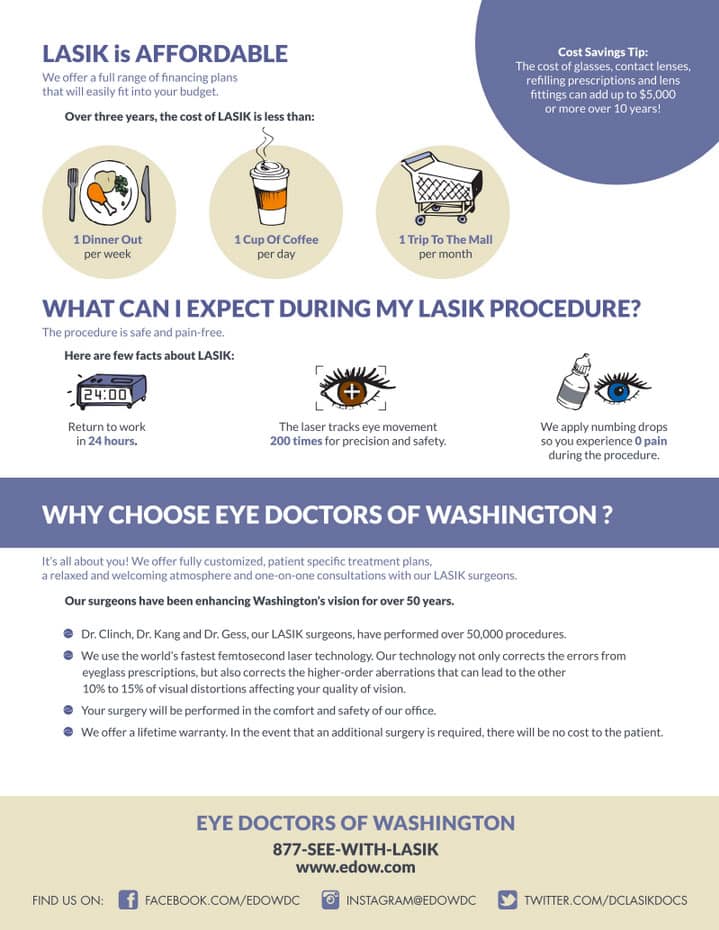Seeking Info On Refractive Lens Exchange? Discover Critical Insights And Solutions That May Change Your Method To Vision Treatment
Seeking Info On Refractive Lens Exchange? Discover Critical Insights And Solutions That May Change Your Method To Vision Treatment
Blog Article
Material Develop By-Hunter Espinoza
If you're considering refractive lens exchange, you possibly have a lot of concerns. This treatment can transform how you see the world, offering benefits like decreased dependancy on glasses. Nonetheless, it's vital to recognize the process, dangers, and that qualifies as a good candidate. Allow's explore these crucial facets so you can make an informed choice about whether RLE is right for you.
What Is Refractive Lens Exchange and Exactly How Does It Work?
Refractive lens exchange (RLE) is a surgery developed to change your eye's all-natural lens with a synthetic one, correcting vision issues like nearsightedness, farsightedness, or presbyopia.
Throughout the procedure, your surgeon makes a small cut in the eye, eliminates your natural lens, and inserts an intraocular lens (IOL) tailored to your vision needs. This outpatient surgical treatment generally takes about 15 to half an hour per eye and is performed under regional anesthetic.
You'll likely notice improvements in your vision almost instantly, though full recovery might take a couple of weeks. RLE is especially beneficial for those over 40 or with high prescriptions, using a resilient service contrasted to glasses or get in touch with lenses.
Your eye treatment professional can aid establish if RLE is right for you.
What Are the Benefits and Dangers of Refractive Lens Exchange?
Selecting refractive lens exchange can lead to substantial improvements in your vision, but it is essential to weigh both the benefits and risks before deciding.
On the plus side, this treatment can boost your vision by remedying concerns like presbyopia, nearsightedness, and hyperopia. Lots of patients appreciate reduced dependancy on glasses or get in touch with lenses, which can significantly improve their lifestyle.
However, it's crucial to take into consideration possible threats. https://buffalonews.com/lifestyles/health-med-fit/scar-tissue-that-can-form-after-cataract-surgery-usually-easily-remedied/article_ecdbf89b-9f69-5cf6-b4fa-f19160e852db.html can include infection, glow, or halos around lights.
There's likewise a possibility of overcorrection or undercorrection, which might need additional procedures.
Who Is a Suitable Prospect for Refractive Lens Exchange?
If you're considering refractive lens exchange, it's important to know whether you fit the profile of an excellent candidate. Normally, you might be a good candidate if you more than 40, experience presbyopia, or have high levels of nearsightedness or farsightedness.
It's also critical that your vision is secure, implying your prescription hasn't changed significantly in the past year. If you have cataracts or other eye conditions, you could gain from this treatment as well.
Nonetheless, specific variables, like uncontrolled diabetes or autoimmune illness, might disqualify you. To identify your candidacy, talk to an eye treatment specialist that can assess your specific scenario and advise the best course of action tailored to your demands.
Final thought
In conclusion, refractive lens exchange can be a transformative option for improving your vision, specifically if you're over 40 or have a high prescription. While https://carie-sanford.blogbright.net/inform-yourself-on-vision-adjustment-surgical-procedure-and-discover-the-unexpected-realities-that-might-change-your-view-on-living-without-glasses are substantial, it's important to consider the risks and speak with your eye care expert to figure out if you're an optimal prospect. With the right details and guidance, you can make an informed choice and potentially delight in a life with decreased reliance on glasses.
